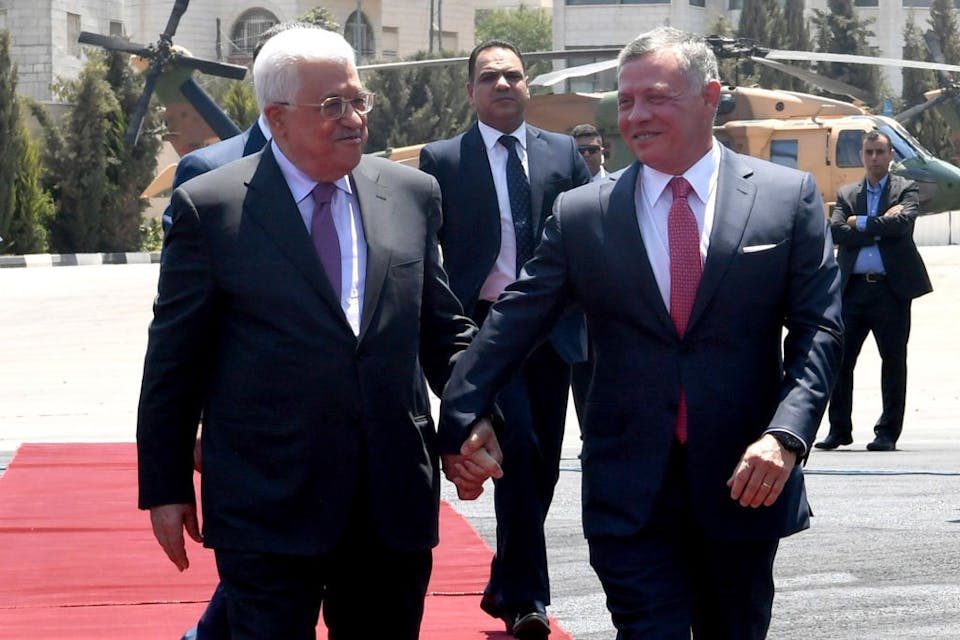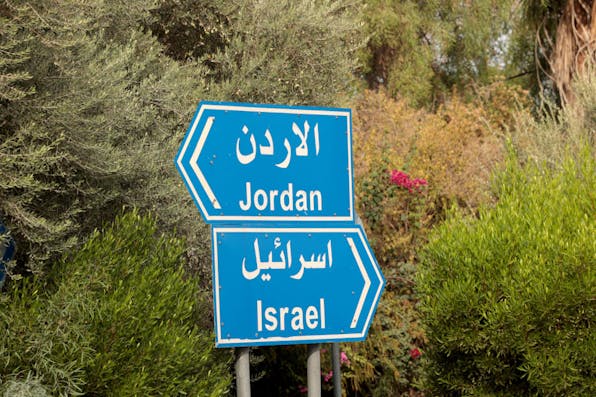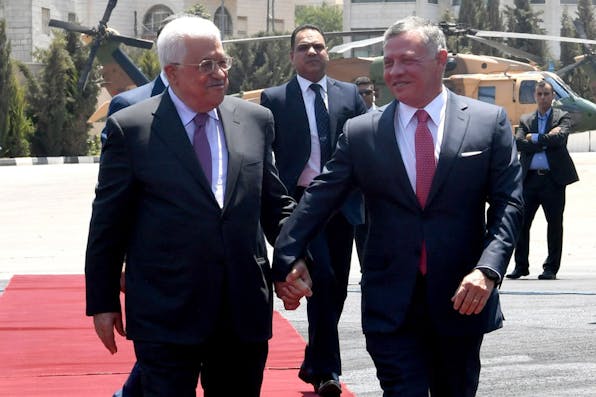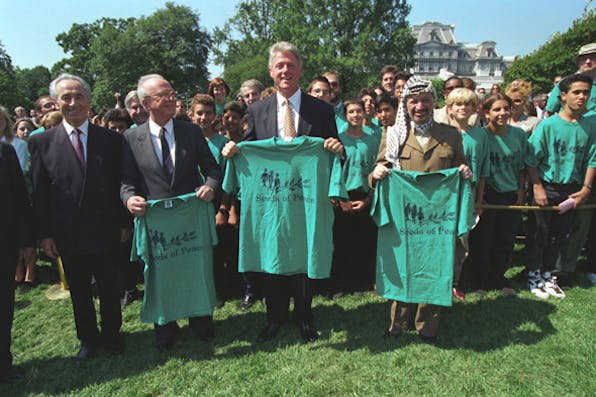
September 29, 2025
With Israel-Jordan Relations at an All-Time Low, the Countries Aren't Likely to Cooperate in the West Bank
Amman and Jerusalem need to worry about maintaining peace, not new arrangements in the West Bank.
In his thoughtful essay, Elliott Abrams puts forward a compelling articulation of the obstacles that have stood in the way of the formation of a Palestinian state, and which continue to do so. As a possible alternative to the two-state solution, Abrams brings up the possibility of a Jordanian-Palestinian confederation turning the Palestinian West Bank territories into a semi-autonomous entity within Jordan. It is this proposal that I wish to focus on. Variations of the Jordanian option have been raised by figures on almost every side of the conflict over the years. For all the points Abrams raises in its favor, it still presents nearly insurmountable hurdles, perhaps none more difficult than the ongoing erosion of the Israel-Jordan relationship.
To begin with, Jordan’s King Abdullah has of late been uncharacteristically pointed in his criticism of Israel. Following Israel’s September 9 attack on Hamas’s leadership in Qatar, the king joined 56 other countries at the September 15 Arab-Islamic summit in calling for tougher measures against the Jewish state. He also called the attack “proof that the Israeli threat has no limits,” and advocated for a “clear, decisive, and deterrent” response. He urged his colleagues to “review all our tools of joint action to confront the threat of this extremist Israeli government.”
Just days later, during his September 23 speech before the UN General Assembly, King Abdullah again centered his remarks on Israel. His criticisms focused on the Israeli government’s threats of annexation and settlement expansion in the West Bank, its alleged complicity in the desecration of Muslim and Christian holy sites in Jerusalem, and on its “provocative calls for a so-called ‘Greater Israel.’” In light of all this bad behavior, the king said, “the international community must stop entertaining the illusion that this [Israeli] government is a willing partner for peace.”
Responses to September ’s Essay

September 2025
Jordan Might Not Want Confederation with Palestinians, and Might Not Survive It
By Rafi DeMogge
September 2025
With Israel-Jordan Relations at an All-Time Low, the Countries Aren't Likely to Cooperate in the West Bank
By David Schenker
September 2025
Why the Two-State Solution Is Dead—and What Comes Next
By Elliott Abrams, Jonathan Silver
September 2025
The Central Obstacle to Peace between Israel and the Palestinians Isn't Politics
By Mordechai Kedar
September 2025
No One Knows What’s Next, But It Cannot Be the Old Two-State Solution
By Elliott Abrams